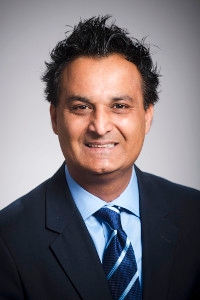Foodfight among the ikes of plant and pathogens in Apoplastopolis

THIS SEMINAR HAS BEEN CANCELLED
Dr. Shahid Mukhtar
March 20 at 12:20pm in the Fralin Auditorium, 102 Fralin Hall
Hosted by Dr. J. McDowell
Dr. Shahid Mukhtar did his PhD at Max-Planck Institute, Cologne, Germany in 2005, and studied transcriptional gene regulation in plant defense in the labs of Imre Somssich and Paul Schulze-Lefert. For his post-doc, he joined the laboratory of Dr. Jeff Dangl, an HHMI and NAS member, at the University of North Carolina at Chapel Hill. In 2010, Dr. Mukhtar started his own lab as an assistant professor in the department of biology at University of Alabama at Birmingham. Currently, he is a tenured associate professor. His lab focuses on systems biology and machine learning of plant-microbe interactions. He has published 46 articles in peer-review journals, and is currently funded by the NSF. He also served as the chair of SS-ASPB in 2018-19.
The plant-pathosystem constitutes a very complex biological network in which the molecular players from both pathogen and host battle for dominance. To initiate infection, diverse pathogens enter plant tissue and reside in the extracellular spaces known as the apoplast. Plants detect molecular components of the pathogens and often respond with effective immune responses. In contrast, pathogens use several mechanisms to disrupt defense responses and gain access to host nutrients. Acquiring access to host nutrients is essential for bacterial growth and reproduction and is of primary importance as a virulence strategy. Upon encounter with pathogens, the net rate of photosynthesis in the infected cell decreases, and the infected source is converted into an active sink. Moreover, the pathogen’s carbohydrate demand creates an additional major sink, turning the apoplast into the central battleground for sugar acquisition. This significantly alters the flow of sugar transport and carbon partitioning at the whole plant level. During this conflicting interaction, virulent pathogens residing in the apoplast try to maximize nutrient efflux from the host cell, while plants increase the retention of sugar and other micro- and macro-nutrients. I will discuss the molecular mechanisms by which bacterial pathogen modulate host regulatory system to interfere with nutrients influx.
Mishra B, Sun Y, Howton TC, Kumar N and Mukhtar MS*. Dynamic modeling of transcriptional gene regulatory network uncovers novel pathways during the onset of Arabidopsis leaf senescence (2018). (NPJ Systems Biology and Applications; Nature Publishing Group;), https://doi.org/10.1038/s41540-018-0071-2. *Corresponding author.
Ahmed H, Howton TC, Sun Y, Weinberger N, Belkhadir Y and Mukhtar MS*. Network biology discovers pathogen contact points in host protein-protein interactomes. (2018) Nature Communications, 9: 2312. doi: 10.1038/s41467-018-04632-8, * Corresponding author

This seminar will be livestreamed but NOT recorded.


